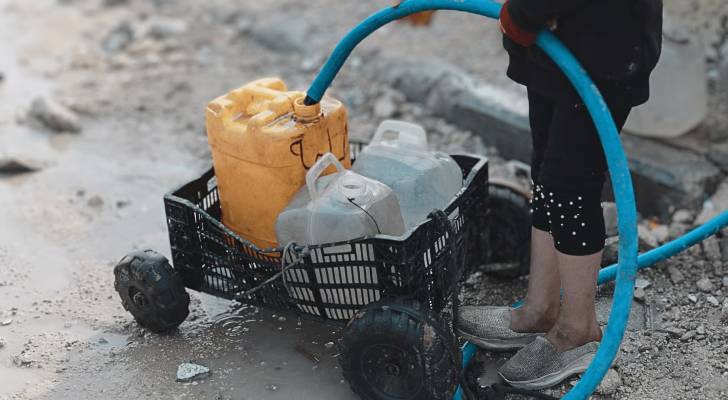'Israel' disabled 60 desalination plants in Gaza: Doctors Without Borders
International medical charity Doctors Without Borders (MSF) has accused 'Israel' of deliberately denying Palestinians in Gaza access to clean water by destroying infrastructure and blocking the entry of essential treatment equipment.
After nearly two years of bombardments and restrictions, the available supply of safe water in Gaza is “wholly insufficient,” MSF said in a statement on Thursday, describing water as being used as “a weapon of war.”
According to the group, since June 2024 only one in ten of its requests to bring in materials needed for desalination has been approved by 'Israeli' authorities. MSF currently operates seven treatment units that provide water to around 65,000 people. This amounts to just 7.5 liters per person per day, well below the minimum emergency standard.
“Israel must begin allowing the importation of critical equipment for water supply and distribution at scale,” MSF urged. “The Israeli military must stop destroying water infrastructure and allow the immediate repair of damaged systems.”
Gaza has no naturally potable water, with sources contaminated by seawater and sewage. Two of the three pipelines supplying the enclave have been repeatedly damaged since October 2023, while more than 60 percent of its 196 desalination plants are now non-functional due to strikes or access restrictions.
The water crisis is fueling a surge in disease. MSF teams report treating over 1,000 cases of acute watery diarrhea each week, alongside widespread skin conditions such as scabies. Hospitals are also struggling to maintain hygiene and keep patients hydrated.
“There’s too little water for too many people,” said Mohammed Nsier, an MSF water and sanitation officer in Gaza. “The amount we can provide is very small compared to the need, and conditions are extremely difficult.”
The charity said displacement orders issued by the Israeli army—now covering 86% of the Gaza Strip—have made it dangerous for water trucks to reach many communities. Even when deliveries are possible, families must carry heavy containers long distances through bomb-damaged areas.
“You see how people are struggling, everyone is desperate for water,” said a woman waiting at a distribution point in Gaza City. “Honestly, it’s very hard to get water, even walking a little bit is very difficult. I don’t know what to tell you—it’s torture.”
MSF also warned that its efforts to repair pipelines and desalination plants remain blocked by restrictions on importing spare parts, chemicals, and fuel.
“By refraining from cutting off water entirely, they allow plausible deniability while choking Palestinians of their means of survival,” said Ozan Agbas, MSF’s emergency manager.




